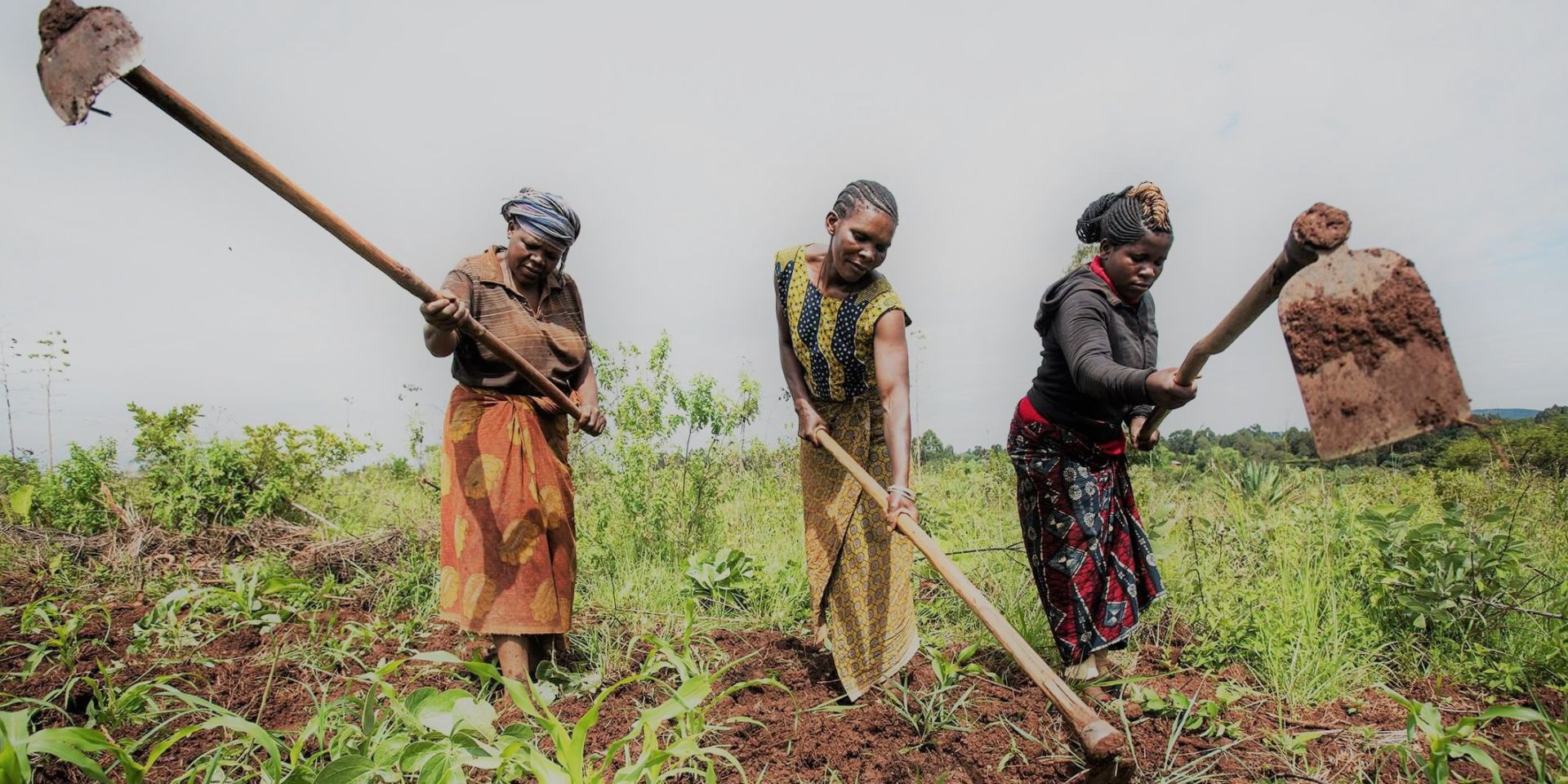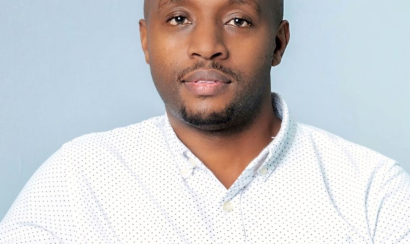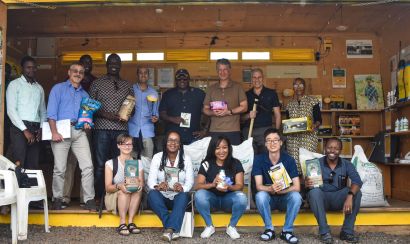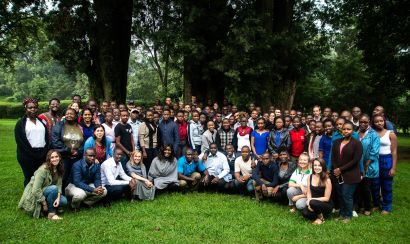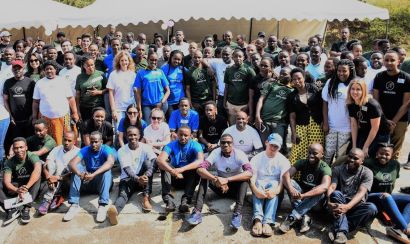Meet the Farming ‘Activist’ who Helped Revolutionize Food Production
In 2006, John Gachunga, then a 29-year-old project management expert, met Andrew Youn, our current Executive Director, and together they founded One Acre Fund. Theirs may have been a meeting of chance, but the task they set about doing was deliberate and close to their hearts. John describes his childhood as a time when subsistence farming catered to the rural family’s every need. As a young boy, he understood its value — it educated, clothed, and fed him. As an adult, and a farmer himself, he has committed to creating the value he saw. As One Acre Fund sets its sights on serving 10 million farmers by 2030, we're looking back on what we've learned along the way to help shape our vision for the future. In this reflection piece, we asked John about One Acre Fund’s journey and what he learnt from the organization’s early start-up days. Today, John is an Independent Business Consultant affiliated with Alpex Consulting Africa Limited and remains a formal advisor at One Acre Fund.
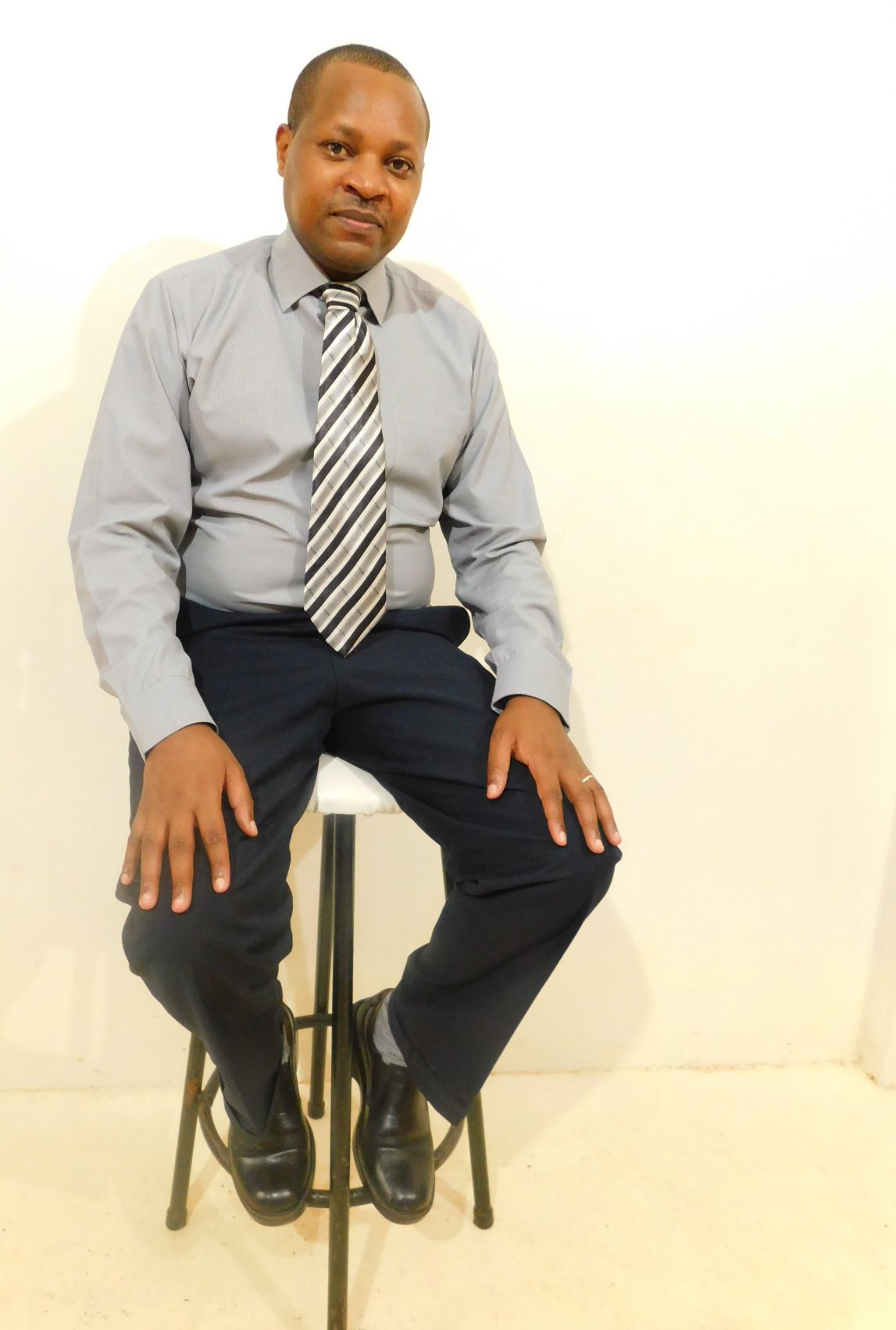
Why are you passionate about farmers?
I was brought up in a rural setting. My parents were farmers, and from my early days, I appreciated the role farming plays in rural communities. Our school fees, upkeep, and everything we needed for our sustenance came from farming. In Kenya, as with many African countries, farming is what fuels our economy. As a development enthusiast, I love to see farmers get value from their work. Farming is an inherited livelihood, and for many, it is all they know.
What was your story in 2006? What led you to start One Acre Fund?
I met Andrew, One Acre Fund’s current Executive Director, through a friend I went to college with. My friend’s colleague had mentioned that Andrew was looking for a potential project manager to help launch an agricultural start-up, and my friend asked if I might be interested. I was, and so he connected us. When Andrew shared his project plan, I was excited by the model he proposed; it was a revolutionary concept that made farming bankable, and that struck the right chord with me. We subsequently met when he traveled to Nairobi, discussed the job’s details, and started work in Bungoma County.
What role/s did you specifically play at the time?
I was a project manager. I was the day-to-day execution lead with a focus on enrolling farmers, developing new sites, hiring staff, and controlling our finances. It was also my job to build and train our team and develop their capacity to steer our young organization.
When One Acre Fund started, it looked a bit different than it does now. How did you and Andrew decide on what approach to take to support farmers back then?
We did several things that worked exceptionally well. One, we started small. We’d recruit a group of 15 to 20 farmers and assign a field officer to train them and track their progress. This allowed us to learn quickly and action feedback. Two, we focused on farmer training and development. We didn’t just offer inputs; we also taught farmers to optimize their land and inputs. Three, we regularly provided management training to all staff through weekly meetings, which helped us troubleshoot problems, train and mentor the team to excel at their work. As part of this process, we identified potential managers and equipped them with the tools and skills to lead and mentor others.
There were also initial hiccups. When we started, we asked farmers to pay for inputs in kind — we agreed that they’d give us a portion of their harvest to cover the cost of inputs. That didn’t work well. For one, it took a lot of time and effort for field officers to monitor harvesting, supervise shelling and drying (of maize) and have it delivered to our warehouse. Secondly, it raised a moral question: we founded One Acre Fund to help farmers produce more and fight hunger; taking away part of their harvest defeated that purpose. As farmers noted, and as we found out, they had alternative revenue sources that could help them repay their inputs over time, so we changed the payment mode to cash. That approach worked for both parties, but it also meant that field officers had to carry around large sums of money when collecting repayment, which posed its own risks. The subsequent introduction of mobile money was a timely solution for us.
Thinking back, what do you think allowed One Acre Fund to grow as it did?
I’d narrow that down to our unique approach to supporting farmers. We were deliberate about focusing on the customer, and farmers appreciated the value they gained. We trained field officers to treat farmers as clients, and every decision we made centered on what value we were creating for farmers.
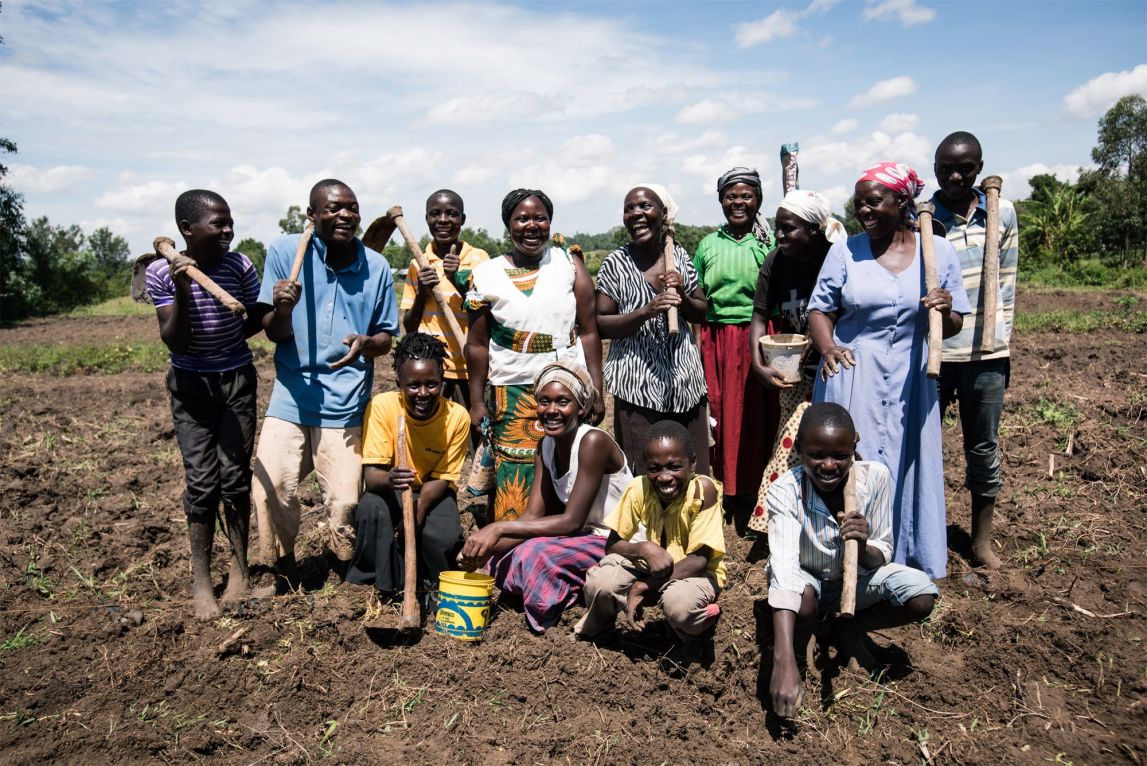
We think a lot about the comprehensiveness of our program. We offer credit, inputs, training, and add-ons like solar lamps, phones, trees, and chicken, things farmers would not usually get at an agro vet, for instance, or even a government agency. Is this something you thought about from early on?
Absolutely. We set out to be a comprehensive service provider and, although we could not offer everything all at once, we envisioned One Acre Fund as a one-stop shop. As part of our value-addition program, we wanted to walk the farmer’s journey. We designed the program to offer training throughout the planting season to have farmers interact with as much agricultural knowledge as possible.
Was the organization’s motto “Farmers First” from the beginning? If so, how did it come about?
We settled on this philosophy from the beginning but internalized its value after gaining some experience in customer service. We got feedback that some of our field officers became harsh when asking farmers to repay, as is common in micro-lending, so we trained them to understand that we were working in service to farmers and that we needed to place their wellbeing and interest above everything else. Customer service became part of service training, and the mantra ‘Farmers First’ was born.
What lessons did you learn from building One Acre Fund from scratch?
There are quite a few.
- Understand your mission and objectives and direct your resources and effort towards attaining that mission.
- Understand your market needs — farmers in our case — and meet them.
- Understand your risks and make plans to preempt and manage them. There are so many uncertainties with any new social enterprise. It requires you to be courageous enough to forge ahead and flexible enough to adjust to realities.
- There is no end to learning. We took lessons every day, incorporated them into our work, and turned them into practices that we used to drive our mission.
- Be on the lookout for new opportunities and use them to grow. In our case, we identified needs gaps and offered additional products and services that allowed us to improve our program.
- Listen to clients and get as much feedback as possible.
- Communicate clearly and effectively to every stakeholder — farmers, funders, support agencies, and staff to ensure everyone is aligned on important focuses.
- Lastly, network closely with collaborators and like-minded organizations, including partners in government and media. Contacts and connections matter.
At 44 years, what drives you?
I live for the desire to create impact in whatever I do. I constantly ask myself, what value do I bring?
What is your biggest professional accomplishment? How did it shape your career?
Helping establish One Acre Fund remains one of my most exciting accomplishments, mainly because I can see how the organization grows and empowers farmers and impacts communities. I learned a lot during my time at the organization, and those lessons have helped me continue to progress in my career and build myself professionally.
What CEOs do you admire? Why?
I think very highly of James Mwangi (Equity Bank), Joshua Oigara (Kenya Commercial Bank), former Safaricom CEO Michael Joseph, Tesla’s Elon Musk, and One Acre Fund’s Andrew Youn — who, might I add, is one of my mentors. I admire their passion and foresight to see the bigger picture and create a meaningful impact for humanity.
